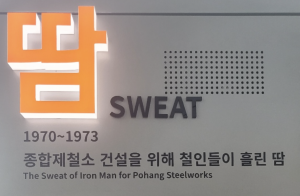Pohang: POSCO Museum
Photo essay of wall text of POSCO Museum of Pohang

Photo essay of wall text of POSCO Museum of Pohang

XXX

The Turkish culture associates "epillepsy" with mental retardation, so they usually refer to seizures as 'fainting". This can cause confusion when in a medical setting, as fainting and seizures are two different issues. The stories usually falled into one of five plot categories. The conditions were typically caused by a frightful experience, a childhood fever or injury, no apparent reason, chronic suffering, or an evil eye. These classifications help see trends and learn where improvements can be made.
Miriam Ticktin is an associate professor of anthropology at The New School for Social Research, as well as the Co-Director of Zolberg Institute for Migration and Mobility. This indicates that she writes this article from an anthropologic perspective rather than with a biological or political viewpoint.
Emergency response is the main idea in this article, but specifically that related to nuclear emergencies. An interesting point was made about the confidentiality of the plants and their "trade secrets" of sorts. While being transparent is helpful for safety reasons, it also reduced the profitability of the company, since other companies would be able to use their ideas. EMS knows a lot about respecting privacy through HIPPA, however it is also important to know the layout of important or potentially hazardous buildings within a response district. This would be a necessary compromise to make between the nuclear emergency response team and the nuclear leaders.
The film is mostly about general people in the healthcare system. It takes place at one particular hospital but the cases could all easily take place anywhere. The struggles of the doctors, nurses, staff, patients, and families are applicable anywhere in th ecountry with our less than optimal healthcare system, there is so much more managerial stress on everyone than just making people healthy.
The Partners in Health are working on expanding surgery centers across the world, as described on their website: "'Essential surgical procedures rank among the most cost-effective of all health interventions,' finds the World Bank.". They have surgical centers, clinics, and other facilities for healthcare, but also help to better all of the infrastructure in the communities they aid, to reduce the spread of diseases.
The system may be difficult without internet, downloading every article could be tedious. If there aren't any articles that are tagged with what the user is looking for, that would also be difficult.
The film is geared towards the general public, all medical terms are explained fairly well. No medical or first response background is necessary, and it is fairly educational for viewers.